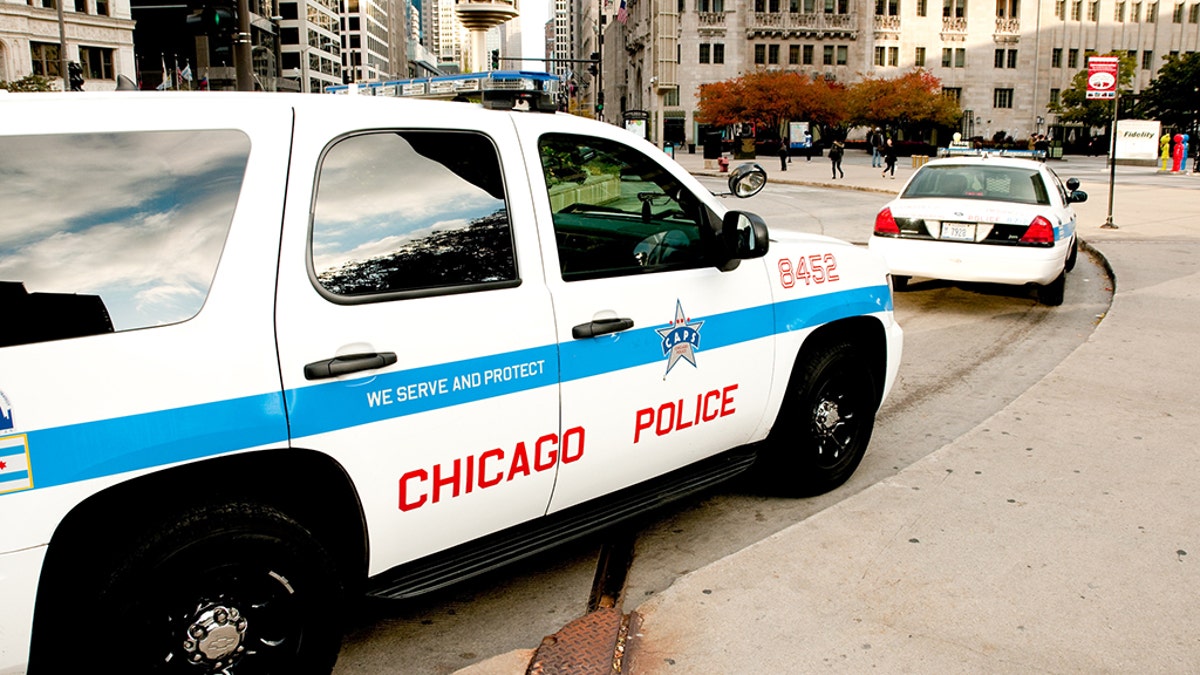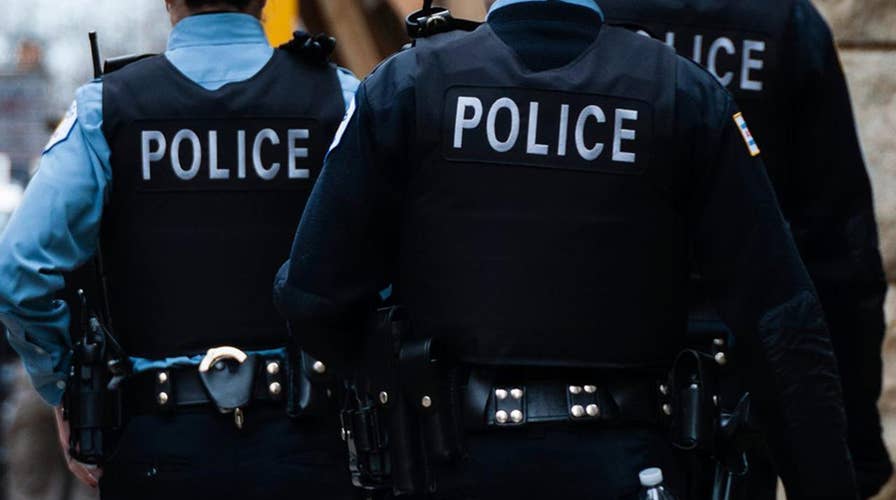For the third year in a row, the number of police officers who committed suicide outnumbered those killed in the line of duty, according to Blue H.E.L.P., a non-profit organization that tracks law enforcement suicides.
At least 160 police officers nationwide took their own lives in 2018. One more than 2017 and a spike in 19 suicides compared to 2016.
The large majority of suicides are men who kill themselves with a gun.
2 CHICAGO POLICE OFFICERS RESPONDING TO A SHOTS-FIRED CALL ARE STRUCK, KILLED BY TRAIN
New York and Chicago lead the country with at least five police suicides – but Chicago’s force is notably smaller. So, by the numbers, it’s considered the worst among police suicides, according to Blue H.E.L.P.
Chicago’s Fraternal Order of Police published a statement after the death of Officer Dane Smith that blamed increasing police despair on the negative news coverage of police officers. Smith, 36, killed himself on New Year's Day.
“The fact that the police are so vilified in the media and the political system, constantly subject to false allegations that lead to discipline and other forms of harassment, certainly take its toll on police officers,” the union said in a statement last week, “and is a leading cause of despair and low morale throughout the department.”
Smith leaves behind a wife and young son. The family will not receive line-of-duty death benefits because Smith did not die on the job.

New York and Chicago lead the country with at least five police suicides – but Chicago’s force is notably smaller. So, by the numbers, it’s considered the worst among police suicides, according to Blue H.E.L.P.
Smith’s stepfather, Jeffrey Sacks, raised Smith from a very young age and said Smith was a family man who enjoyed boxing and was open about his battle with depression. Smith was seeking treatment but his family did not see the suicide coming.
DEATHS OF POLICE OFFICERS ON DUTY ON THE RISE IN THE US
“He was always a guy that could handle himself. I was always the little guy that couldn't handle myself in a physical situation,” Sacks said. “If he walked into a physical situation – just his presence. The boy looked good in uniform, I'll tell you that. He looked like a police officer. And he spoke well. And he wrote well.”
Sacks feels remorse and worries about Smith’s wife and child.
“Anger, guilt because what could I have done better to prevent that. And sorry. Because I know he is leaving a little baby to grow up all by himself without a father. It will leave a huge gap in our family,” Sacks said.
Ron Rufo is a retired police officer who wrote a book on police suicides. He thinks many officers internalize the worst part of their job.
“Mine was a little girl, a baby girl who was shot in the eye. I still picture that to this day,” Rufo said.
Rufo told Fox News that police are often afraid to get help for fear of being labeled soft—or worse, being committed and having their license to carry revoked.
“They're keeping a lot inside what they see on a daily basis. Tragedy, critical incidents. It builds up and they don't really speak to their significant other about it and it keeps on going,” Rufo said.
Rufo said the backlash on police officers is taking a toll.
He admits there are bad cops, even racist officers, that need to be weeded out. But general disrespect for police hurts morale.
CLICK HERE TO GET THE FOX NEWS APP
"There are people who really don't care if an officer gets hurt or killed,” Rufo said.
Police in Chicago told Fox News that now, more than ever, they work under extreme pressure and fear being labeled racist or being hit with a lawsuit. And they do hesitate seeking professional treatment.
“My thing is who is taking care of the police? We are first responders but who is responding to us? We need to focus on that and let's help our officers when we are out there,” Rufo said.
In response to Smith’s suicide, Chicago police Superintendent Eddie Johnson announced the force is going to beef up its employee support groups and is trying to raise awareness for law enforcement mental help.
“If an officer is thinking about this, think about the big picture. It leaves a major gap. Your family is going to have such a hard time dealing with it. It doesn't benefit anybody. It certainly doesn't benefit the family,” Sacks said. “The family is left with debt and fathers play such an important role in a child growing up.”










































